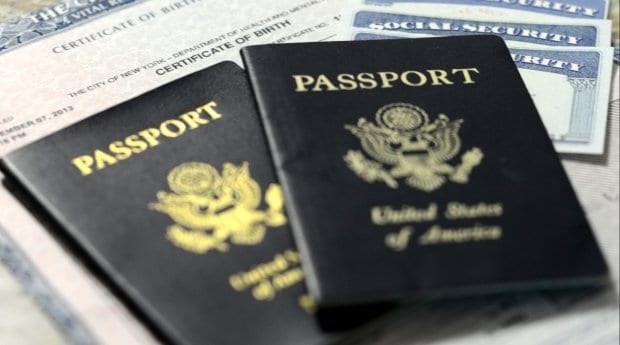In a May 26 National Post commentary entitled “Sorry LGBT, sex and gender are not the same,” Barbara Kay rails against efforts by Morgane Oger, a BC trans activist working to remove legal sex designation from birth certificates.
Kay’s piece (which is specific to trans issues, but inexplicably addressed to “LGBT”) is only her latest salvo in a series of pieces where she consistently attacks the legitimacy of trans identities for the benefit of the Post’s readership.
Oger’s human rights quest is fallacious, deems Kay, because of the choice of words in Oger’s complaint: birth certificates record sex at birth, but Oger’s complaint refers to those designations as “gender references.”
“There are no ‘gender references’ on birth certificates,” writes Kay, before (I imagine) snapping her fingers and moonwalking off the stage while wearing a dictionary for a hat.
“Sex is an objective biological fact. Gender is a subjective psychological feeling,” she continues, then gives a prejudiced definition of trans identities in which she un-ironically uses the phrase “trapped in the wrong body.”
Contrary to Kay’s assertion, trans people know very well the distinction between sex and gender. We are forced to live that distinction every day of our lives, in a world full of Barbara Kays.
In reality, Oger’s position is more refined. She does maintain that “sex is gender in Canada,” which is admittedly confusing when taken out of context. But in context, it makes perfect sense: from a legal standpoint, sex and gender are the same. Therein lies the problem, and arguably the greatest legislative thorn in the side of trans people in Canada today.
It’s been established over and over in case law at provincial and federal human rights tribunals that identification documents, where they carry a male/female designation, are intended to identify the gender of the person (rather than the sex), even where the label on the document says “sex” instead of “gender.” Here, the legal intent is more important than the actual word itself.
But thanks to outdated, cis-sexist cultural norms about sex and gender, these designations are still mislabelled “sex,” because they are wrongly assumed to always match the person’s physical sex, and because they are still initially recorded from the physical sex which is listed on the birth certificate.
That, Ms Kay, is the problem that activists are seeking to address, in cases like Oger’s in BC, and in my own federal case against Social Insurance Registration. It’s actually society and government who have mixed up the definitions of sex and gender; we activists are just trying our best to correct that mistake.
“Sex, like race and blood type, is immutable,” Kay argues, proposing that sex designation on birth registrations shouldn’t be changeable. Except, with an entire legal framework built up around other forms of ID relying on the birth certificate as the primary source, the human rights tribunals have rightly acknowledged that, in Canadian law, changing gender means changing sex. Is that right? Probably not, but it’s what we’re stuck with right now.
So how do we finally fix this mess? Well, my birth weight, birthplace and mother’s maiden name are also recorded in my birth registration, but these other immutable facts of my birth aren’t duplicated onto my passport, my drivers’ license, or my health card — it’s time to handle birth sex the same way.
Instead, these other ID cards could be set up to display a self-reported gender identity — and yes, the label should be changed from “sex” to “gender.” If that were to happen, then it’s unlikely anyone would care any more about what sex is printed on some dusty old birth registration.
Or perhaps, as Oger believes, it’s time to do away entirely with the practice of recording sex or gender at all. But for the time being, with changing the birth certificate sex as the only possible pathway available for trans people to get gender-appropriate ID in this country, the birth certificate will rightly remain the target of human rights complaints.
It’s not clear whether Barbara Kay is legitimately failing to grasp the ideological principle against recording physical sex on ID, or if she’s just pretending and wilfully applying fallacious rhetoric in order to advance her conservative agenda to demean trans people by misleading her readers. In either case, her positions place her firmly on the wrong side of history.
She concludes, “the next time a Human Rights tribunal gets a complaint, how about before agreeing to review it, they consult a dictionary . . . ” But perhaps the next time Ms Kay considers a human rights issue, she should focus less on nitpicking careless use of English language, and focus more on acknowledging discrimination that arises from careless language in the law.

 Why you can trust Xtra
Why you can trust Xtra


